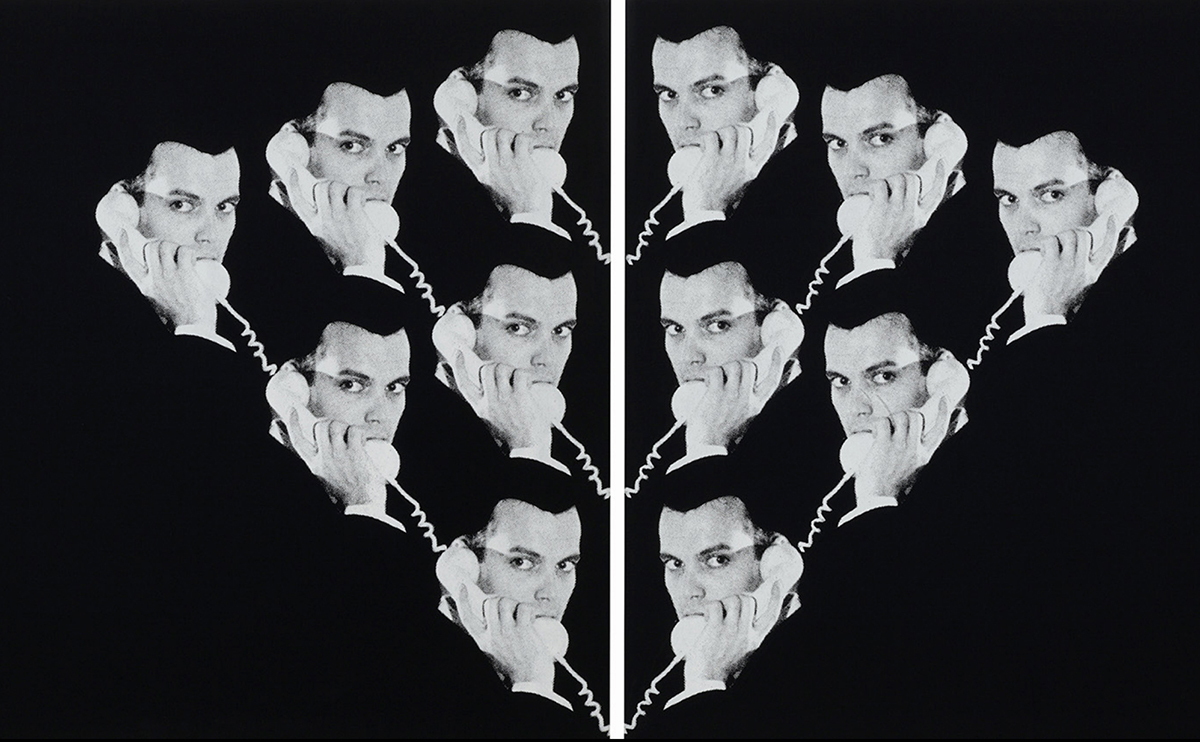
John Stezaker, Untitled. 1985.
A naturalist as well as an idealist, Emerson was also something of a paradox: a social reformer who opposed social reform, a sermonizer and a skeptic, and perhaps most curiously, a loner who liked people. In spite of his resolute stance on individualism, Emerson turns out to have been a pretty social guy, who thrilled to the chance to connect with others, seeking, as he put it, the spiritual inspiration that comes when you discover that someone else believes in you and is willing to trust you with a friendship.
Implied in this is the idea that the apparatus of social interaction protects you from the void of social isolation. (Not true, but let's continue.) Add to that words like belief and trust, and your apparatus is looking pretty damned solid. After all, someone else believes in you. You believe in someone else. Love, and you shall be loved!
Not that simple.
The problem, particularly now, in a global crisis, is that reciprocity itself is not binary—it’s fragmented. Human connection is ambiguous and messy, delicate and unpredictable, like people are. Like life is.
So here's a question for today: Can you love someone—or some thing—enough to let go of the expectation that it must be reciprocated, like it’s a box that needs checking? To let of of the dependency on someone or something else to complete your sense of self-worth?
What if that were the most self-reliant act of all?
Consider the following.
Yesterday, a well-known writer reported her father’s death on Twitter. Her announcement was liked by more than fifty thousand people. (When did liking a death become an approved form of compassion?) Later, a childhood friend wrote to tell me that after a long illness, her husband had died. She described a zoom gathering of their family a few days ago, and the beauty of their collective— if remote—presence as they all said goodbye.
The first example speaks to a compensatory behavior: clicking a button to express a sentiment that masquerades as feeling. The feeling may be genuine, as there’s a clearly a surfeit of empathy here, but the urge to reciprocate is mechanical and misguided. (This is reciprocation by proxy.) The second demonstrates a kind of loving closure, adjusted for distance, but collectively intentional, symphonically coordinated, and emotionally resonant. This is reciprocation as compassion, exchanged willingly, and in real time.
In recent years, we’ve come to pride ourselves on a kind of connectedness that scarcely demands any reciprocation at all. We tag and share, tweet and re-tweet and like things, even things, let’s be honest, as arguably unlikable as death. We equate togetherness with consensus, not connection, quantifying Emerson’s notion of belief in someone by the number of followers we’ve assembled.
That’s not love: that’s lunacy.
To reciprocate is to share and give, generously and willingly and without expectation, so that when it boomerangs back to you, it’s a gift. We need it (and it needs us) but in an age in which we greet each other in tiny boxes on the same bigger boxes that contain our photo albums and our Slack channels and our tax records, a little out of the box thinking is in order, here.
The value of love, wrote C.S. Lewis, does not rest upon reciprocity. Paradoxical as that may seem, it’s also true. If this pandemic is teaching us anything, it’s that reciprocation is not rhetorical—it’s real.
The Self-Reliance Project is a daily essay about what it means to be a maker during a pandemic. Sign up to get it delivered to your inbox here.

